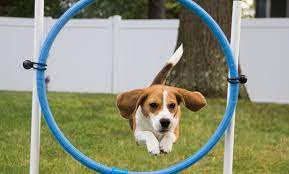24 January 2023. By AgForce CEO Michael Guerin.

Jumping through hoops to get what you want is like living your life to suit other people – and often the harder you try, the more restrictions you face.
As English artist Kit Williams once said, “The hoop is there to remind us not to jump through it, not to submit to someone else’s control.”
But our farmers do it regardless – not because they enjoy it, but because they genuinely care about the future of our planet.
And they’re about to do it again.
With the new year underway, agriculture moves into a new reality surrounding carbon footprints and supply chain transparency.
As intimated in the recent Federal Government Chubb Review into the carbon trading market, farmers will have to justify their impact on the environment if they wish to appease banks and buyers.
It’s a disappointing move, particularly give the huge amount of hoop jumping producers have already done to improve environmental outcomes for Australians.
Agriculture is the only industry to have demonstrably reduced its net emissions by more than 58 per cent since 1995. Yet still we are vilified – our efforts continually ignored as more hoops are put into play.
Here at AgForce, driven by sheer frustration and the need to take back control, we have developed AgCarE (Agriculture, Carbon and the Environment) – a ground-breaking initiative that enables farmers to measure their natural capital condition, broaden their income streams, and reduce their carbon footprint.
Designed by producers, for producers, and verified by scientists, the program identifies low cost, medium risk options for carbon abatement, drought mitigation, improved biodiversity, and sustainable long-term landscape management and business resilience.
Unlike other carbon schemes, AgCarE puts landholders in the driver’s seat, and gives them a voice they otherwise might not have.
As responsible custodians of the land and our nation’s true environmentalists, our farmers will never shy away from playing their part to reduce carbon emissions.
But if the work we do continues to go largely unrecognised, there will come a point when we’ll look around at what everyone else ISN’T doing and say, “No more hoops.”

